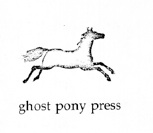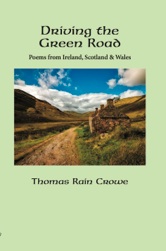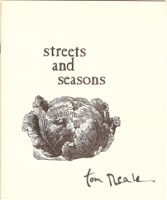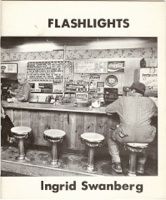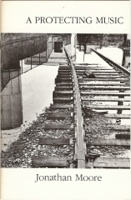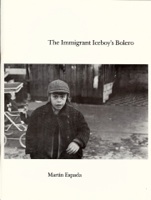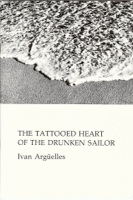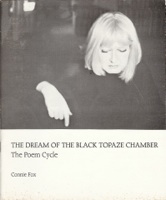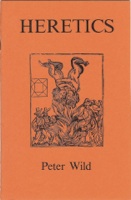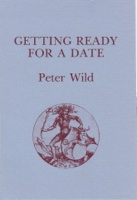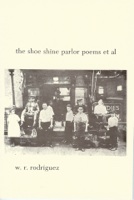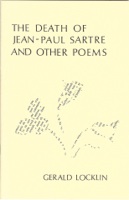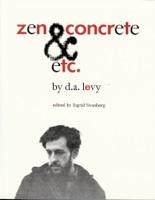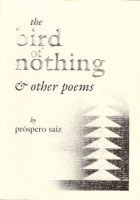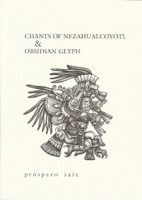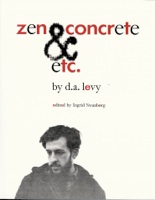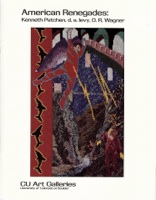catalog
This collection, Driving the Green Road: Poems form Ireland, Scotland & Wales, presents poems drawn from Crowe’s travels in those Celtic countries. Book, 54 pages, ISBN 978-0-941160-19-3, $16 + $3 (standard) or $5 (expedited) shipping.
“Thomas Rain Crowe is a poet who believes in journeys. His poems stem from a sensibility that is far-reaching and worldwide in its intensity while at the same time able to absorb the particularity of everyday life. [Driving the Green Road] is the result of that collaboration between poet and place which was mainly carried out during the summers of 1993 and 1995. His lyric voice documents visions of humanity that are uplifting and present a worldview that is subversively humane. He is tough and yet tender in his approach; he is dark and yet illuminating as he tries to engage his readers in the power of the song. Those elements of Crowe’s oeuvre are present, here, in this book as well.” —Menna Elfyn, Welsh language poet, playwright and editor, Llandysul, Dyfed, Wales
George Drury notes, “acknowledged by many of his peers and mentors for his ability to render precise images, Cope is never content to use that talent as a gimmick.” He has written formidably of the struggles of America’s working people, key events in the world at large, the nation’s many wars, and intimate moments in the lives of his family and friends. As James Ruggia once said, “his mastery of phrasing at times seems to peel the skin from his subjects . . . the poems become transcendent when they begin to dwell on Cope’s favorite theme—the human gesture.”
“I enjoy Copeʼs stretch from familial to sublime and his consummate poetʼs generous heart. The songs keep churning and turning after the pages do their turn: ‘I send you this wish where tender petals turn, open in both darkness and light.ʼ” —Anne Waldman
“To borrow Willa Cather’s words, I believe that, like The Book of Poetry, The Invisible Keys would follow its millennium-old predecessor, and ‘confront time and change so serenely.ʼ”
—Hong Sun
“The Invisible Keys . . . achieves what Francis Bacon describes as ‘the quavering upon a stop in music’ that is not simply a similitude, but the same footsteps of nature. . . . The objective surface of his poems can be understood not just as an expression of his emotional and philosophical detachment but more of his social conscience and commitment.” —Wang Guanglin
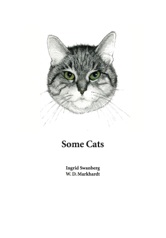
Stephen M. Miller, Jacinda Poems. Eros & whimsy meet in six poems dedicated to the enigmatic Jacinda. Broadside (11 X 17), illustrated, 1981. $3 + $2 (standard) or $5 (expedited) shipping
Jonathan Levenson, tom neale, Jim Dalglish, Road Poems. Three poems in the Whitmanesque tradition of the open road. Broadside (11 X 17), illustrated, 1981. $3 + $2 (standard) or $5 (expedited) shipping

"Jonathan Moore covers more territory in 18 pages. . . .than most
poets manage in full-length books. . . We're rendered a little
breathless by the unrelenting, furious pace of these pages."
–Laurel Speer
Martín Espada, The Immigrant Iceboy's Bolero. Original first edition of Espada's first book; includes black and white photo essay by Frank Espada. Book, 30 pages, ISBN 0-941160-07-6, 1982 ; Out of print; available from sellers of rare books, including Amazon.com.
-
"A lovely first book of striking poems, de autor puertorriqueno, with
photographs by the author's father, Frank Espada. The vision here is of urban events." -
– Bilingual Review
-


"A poet of fantastically vivid imagery and great emotional force."
–George Hitchcock
"If proof were needed that Surrealism is a spontaneous expression of the poetic mind, Argüelles would be the one to provide it. In the tradition of the madder, darker and more mystical Surrealists like Renâ Crevel and Antonin Artaud, Argüelles weaves his mad web of images out of an impossible depth."
–Andrei Codrescu, The Baltimore Sun
"Argüelles works in terribilita. His images work with the under-logics of music, setting symphonics of terror and healing in all directions at once. He does not sentimentalize, he foments. . . .he refuses only littleness."
–Will Inmann


-
"Ms Fox. . .opens with a thickly textured poem encrusted with religious, ethnic-ancient, and Christian motifs, a kind of stray-dog's mummy-meat feast of lost souls waiting to be found. All focuses on Fox's chamber bed–splendidly arrayed for sex both kinky and metaphysical."
–Robert Peters, Small Press Review -




-
"Although central to his poems is the landscape of America's Southwest. Peter Wild's poetry sweeps across the continent of human experience and fantasy. . . . He writes of the most essential and basic human conditions by using language alert to particularization and vivid in its dreamlike quality. . . . Like a man who quietly folds back a cardboard facade or parts gradually a heavy curtain on which is painted an idealized landscape, Wild infuses his poems with convoluted and unexpected images that run rampant."
-
–Walter Freed, Dictionary of Literary Biography
-
"Whimsey and surrealism are hallmarks of his poetic voice, but he has
prided himself on grounding his linguistic flights of fancy in ordinary
experience. . . .springboard[ing] the poems into a galaxy of disparate
nettings that enclose myth, history and fantasy in a web of lyric
drama." -
–Edward Butscher, Peter Wild
-


"Sharp-edged poems about growing up in the South Bronx, where `night calls the ghosts of spice/fried fish and incense/to dance out the windows.'"
–Warren Woessner, A View from the Loft
". . .twenty-six thoroughly engaging and vividly urban poems. . . All are clearly written to be digested by the street people rodriguez knows the best."
–Z Miscellaneous


-
"Locklin. . .adopts a casual, discursive manner in ranging over West
Coast mores and urban perils; sex, fatherhood, and domestic skirmishes;
teaching, drinking and the pursuit of all the essential human appetites."
–The Oxford Companion to Twentieth Century Literature in English -
"I like his stuff. He swings from his heels. . . He's open and calls
the shots. He's also funny and tells the truth."
–Charles Bukowski


"Literary biography and social document–as just these two things Zen Concrete & Etc. is well worth having. But its greatest value is as a collection of levy's textual poetry and visio-textual art."
–Bob Grumman, Small Press Review
d.a.levy ". . . was a poet's poet, working in the tradition of Blake,
Shelley, Thoreau or Rimbaud, that is, wherein the poet's Calling
includes a dedication to no less than a complete revolution of the
existing repressive social order. d.a.levy's life is a fire that
continues to burn on the Cuyahoga River."
–David Dahl, Exquisite Corpse
"Levy had a remarkable karma: he saw who he was, where he was, what his field of activity was, and what his tools were to be. . . .His hometown Cleveland, that he wouldn't move from. Like the Sioux warriors who tied themselves to a spear and stuck it in the ground, never to retreat."
–Gary Snyder, The Old Ways



-
". . .the great eclipse is the `ECLIPSE OF THE SUN' . . .obliquely
denouncing the erasure (by deadly writing) of a whole Native American culture, which the poem feels so movingly powerless to re-inscribe. . . the epic of American consciousness made problematical. . . . Like Leaves of Grass and its `America,' `the bird of nothing' encompasses much more than itself. But while the ambition of Whitman's poem was to translate a whole nation into the whole world, Saiz's exacting poem is an American poem that chooses to have no nation, or borders of any kind, for that matter. . . . An exquisitely fragmentary meditation that self-reflectively breaks in upon the ordered course of human life as it has been conceived of and written -
down in the western tradition.
–Maria Irene Ramalho de Sousa Santos



"Besides naming anew some names which have been unnamed by history, [Saíz] also, most complexly, seeks to incorporate in his text certain things that defy all orders of language: death, pain, and the cry of anguish. . . . Saíz is attentive to every aspect of the act of naming, viz. the sound and beauty of names; the resurrection of forgotten or little-known names or names under the erasure of culture, time, and memory; the use of old forms; the distributed presence or delayed narration of a single name (Washita, Sheridan); the bold graphological shouting of a name (DOWA YALANNE) and, most impressively, the enactment of a crashing, toppling name (TENOCHTITLAN).”
–Dr. Jed Deppman, "Reading Próspero Saíz's "document" and the Absent Cry of History"



-
“saíz is the poet-laureate of the pre-Columbian. Chants of Nezahualcoyotl & Obsidian Glyph is filled with a terrible sense of regret and desperation. The old ways have been crowded out, massacred, buried: `the basin of mexico a long time darkening/no longer by the misty dampness of Tlaloc/but by strange clouds/I feel but do not know/there is a burning without fire and light. . . the skin itches and the hair turns brittle.' (p.69). . . Saiz goes beyond lamenting about lost pre-Columbian glories into the the center of pre-Columbian existentialism itself, the basic, fundamental sense of total ephemeralness. He is one of the most challenging writers to appear on the literary scene within recent memory."
–Hugh Fox



Books by & about d.a.levy Distributed by Ghost Pony Press





d.a.levy & the Mimeograph Revolution, edited by Larry Smith and Ingrid Swanberg. Includes a chronology of levy’s life and work, photographs of levy and his contemporaries, biographical essays, interviews, memoirs, critical appreciations, levy’s correspondence, color reproductions of levy’s art work, a generous selection of levy’s poetry, collages, and Concrete poetry, and the 2006 DVD of Kon Petrochuk’s film on levy, “if i scratch, if i write.” Contributors include Kent Taylor, rjs, T.L. Kryss, Russell Salamon, Karl Young, Jim Lang, Ed Sanders, John Jacob, Michael Basinski, Joel Lipman, Larry Smith, Ingrid Swanberg, et al. Book, 264 pages, ISBN-10: 1-933964-07-3; ISBN-13: 978-1-933964-07-2, Bottom Dog Press, 2007. $16 + $3 (standard) or $6.50 (expedited) shipping





d.a.levy
Last updated - July 20, 2019

